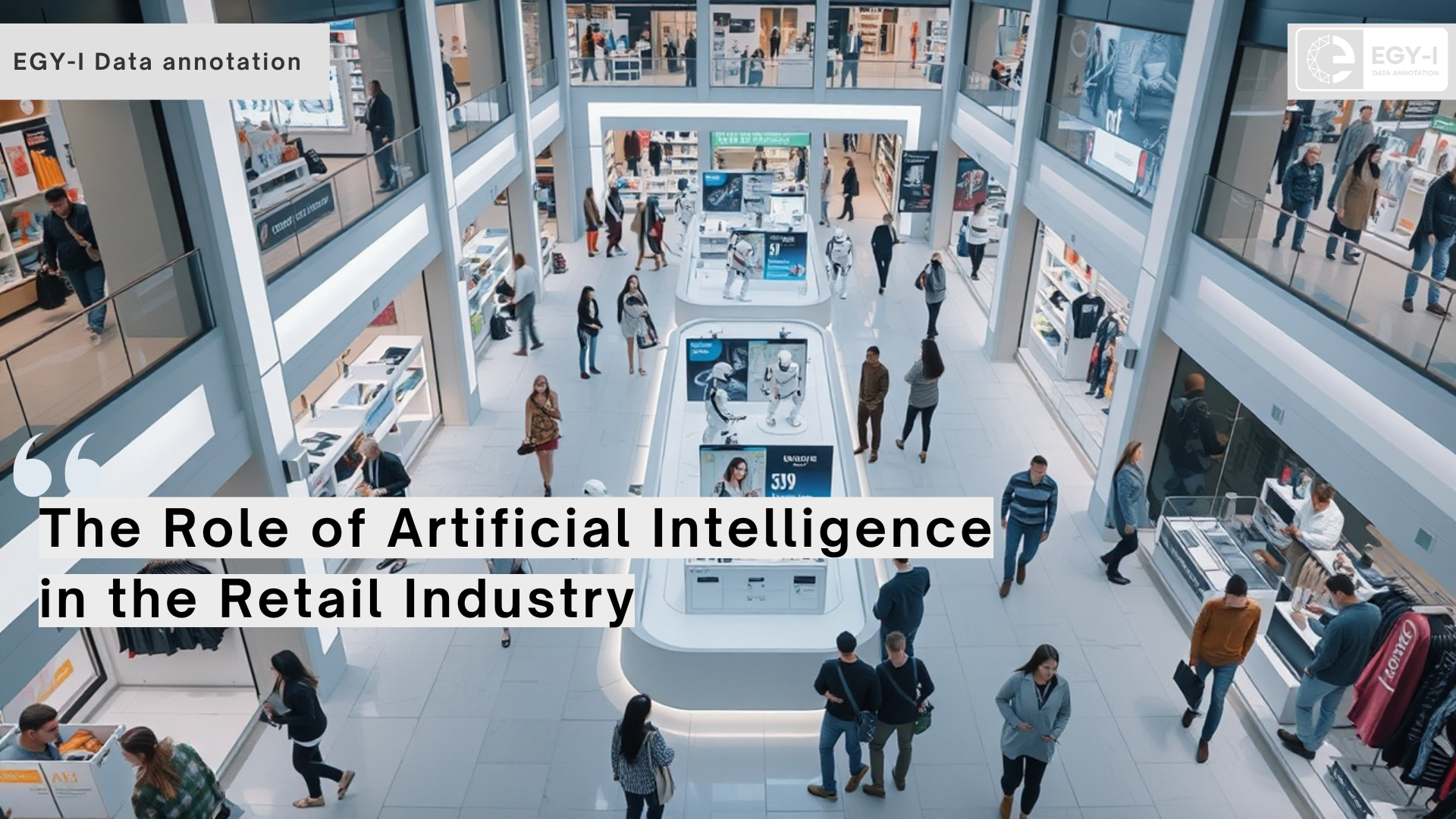The Role of Artificial Intelligence in the Retail Industry

Artificial Intelligence (AI) has emerged as a transformative force in various sectors, with retail being one of the most impacted. By leveraging AI, retailers are enhancing customer experiences, optimizing operations, and gaining a competitive edge. This article delves into the diverse roles AI plays in the retail industry, exploring its benefits, challenges, and future potential.
Security Systems and Shopper Tracking
AI is transforming security systems in retail by enabling advanced shopper tracking and monitoring capabilities.
1. Facial Recognition and Surveillance
AI-powered security systems use facial recognition to identify known shoplifters or unauthorized personnel in real time. These systems enhance store security while ensuring customer safety.
2. Shopper Behavior Tracking
Through cameras and sensors, AI analyzes customer movements and interactions within the store. This data helps in understanding shopping patterns and optimizing store layouts to enhance customer experience.

Behavior Analysis
Understanding customer behavior is crucial for retail success, and AI excels in this area.
1. Sentiment Analysis
AI analyzes customer reviews, social media posts, and feedback to gauge public sentiment toward products and brands. Retailers can use this insight to improve offerings and address concerns.
2. Predictive Customer Insights
AI identifies patterns in customer behavior, such as preferred shopping times or frequently purchased products, enabling targeted marketing and personalized experiences.
Barcode Analysis
AI is revolutionizing barcode systems, making them faster and more efficient.
1. Enhanced Scanning Accuracy
AI-powered barcode scanners can recognize damaged or partially visible barcodes, ensuring smooth operations at checkout counters.
2. Inventory Management Integration
By linking barcode data with AI-driven inventory systems, retailers can track stock levels in real time, automate reordering, and reduce human error.

Product Recognition
AI-driven product recognition technologies are bridging the gap between physical and digital retail.
1. Image Recognition for Product Identification
AI systems analyze images to identify products, enabling features like visual search in e-commerce. Customers can upload pictures of desired items and receive accurate product matches.
2. Shelf Scanning Robots
Robots equipped with AI can scan shelves to detect misplaced items, low stock, or pricing errors, ensuring an organized and efficient store environment.
Retail Shelves Analysis
AI optimizes shelf management to improve product visibility and sales.
1. Planogram Compliance
AI systems analyze shelf arrangements to ensure compliance with planograms, improving product placement and visibility.
2. Stock Level Monitoring
Smart shelves equipped with AI sensors detect when stock is running low, triggering automatic replenishment requests to maintain availability.

Behavior Analysis
Understanding customer behavior is crucial for retail success, and AI excels in this area.
1. Sentiment Analysis
AI analyzes customer reviews, social media posts, and feedback to gauge public sentiment toward products and brands. Retailers can use this insight to improve offerings and address concerns.
2. Predictive Customer Insights
AI identifies patterns in customer behavior, such as preferred shopping times or frequently purchased products, enabling targeted marketing and personalized experiences.
Fashion Retail
AI is driving innovation in the fashion sector, enhancing both design and shopping experiences.
1. Virtual Fitting Rooms
AI-powered virtual fitting rooms allow customers to try on clothes virtually, reducing the need for physical trials and returns.
2. Trend Analysis and Forecasting
AI analyzes fashion trends by monitoring social media, runway shows, and consumer behavior. Designers and retailers can use this data to stay ahead of market demands.
3. Personalized Styling Recommendations
AI systems recommend outfits and accessories based on a customer’s preferences, body type, and previous purchases, creating a tailored shopping experience.
Challenges of AI Adoption in Retail
While AI offers numerous benefits, its implementation comes with challenges:
1. Data Privacy and Security
AI relies heavily on customer data, raising concerns about privacy and data breaches. Retailers must adhere to regulations like GDPR and implement robust cybersecurity measures.
2. High Implementation Costs
Deploying AI systems requires significant investment in technology, infrastructure, and training. Smaller retailers may find it challenging to afford these costs.
3. Resistance to Change
Employees and customers may resist AI adoption due to fears of job displacement or a lack of understanding of the technology.4. Dependence on Quality Data
AI’s effectiveness depends on the quality and quantity of data available. Inaccurate or insufficient data can lead to flawed predictions and decisions.
Future Trends in AI for Retail
The role of AI in retail is continually evolving, with emerging trends promising even greater impact:
1. Hyper-Personalization
Future AI systems will provide even more granular personalization, tailoring marketing messages, product recommendations, and pricing to individual customers in real time.
2. Voice Commerce
Voice-activated AI assistants, such as Amazon Alexa and Google Assistant, are driving the growth of voice commerce. Customers can search for products, place orders, and track deliveries using voice commands.
3. Advanced Robotics
AI-powered robots will play a larger role in warehousing, inventory management, and even in-store assistance. These robots can handle tasks faster and more accurately than humans.
4. Ethical AI Practices
As AI becomes more prevalent, there will be a greater focus on ethical AI practices, ensuring transparency, fairness, and accountability in decision-making processes.
Conclusion
AI is revolutionizing the retail industry by enhancing customer experiences, streamlining operations, and driving innovation. While challenges exist, the benefits far outweigh the drawbacks, making AI an indispensable tool for modern retailers. As technology continues to advance, AI’s role in retail will only grow, shaping the future of shopping for years to come.


